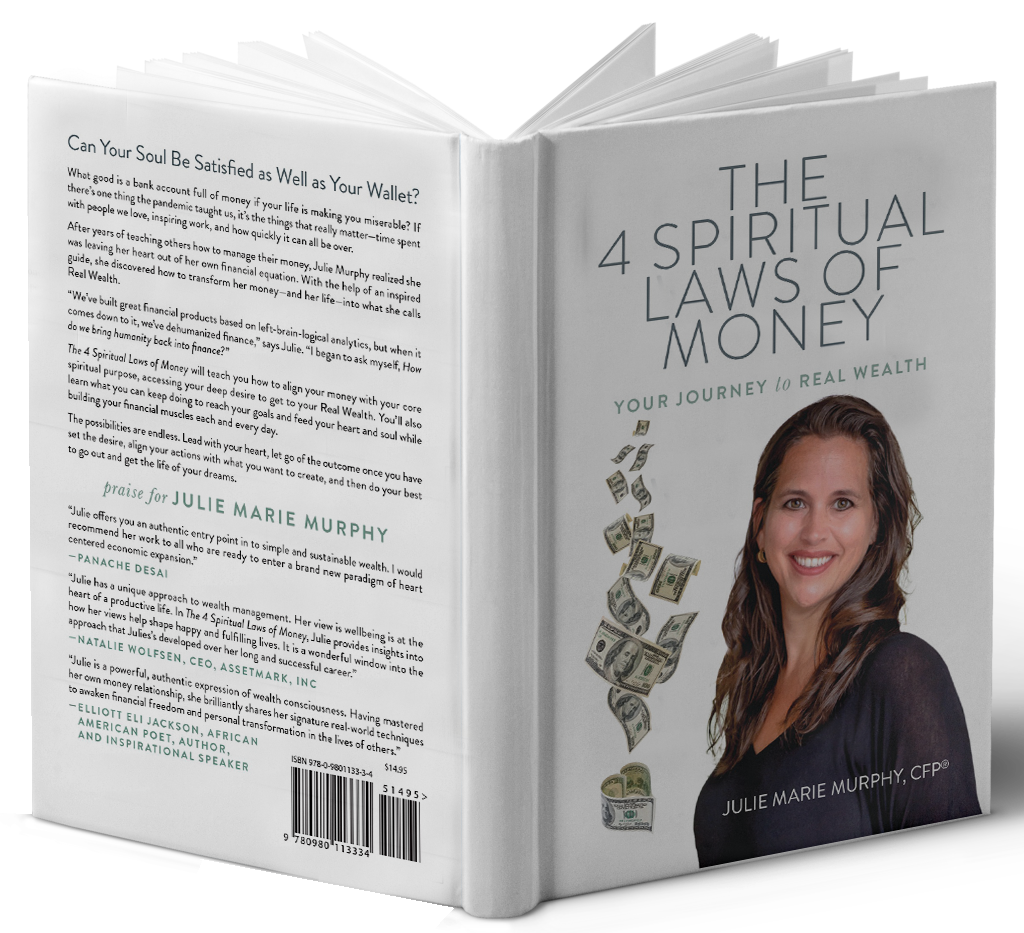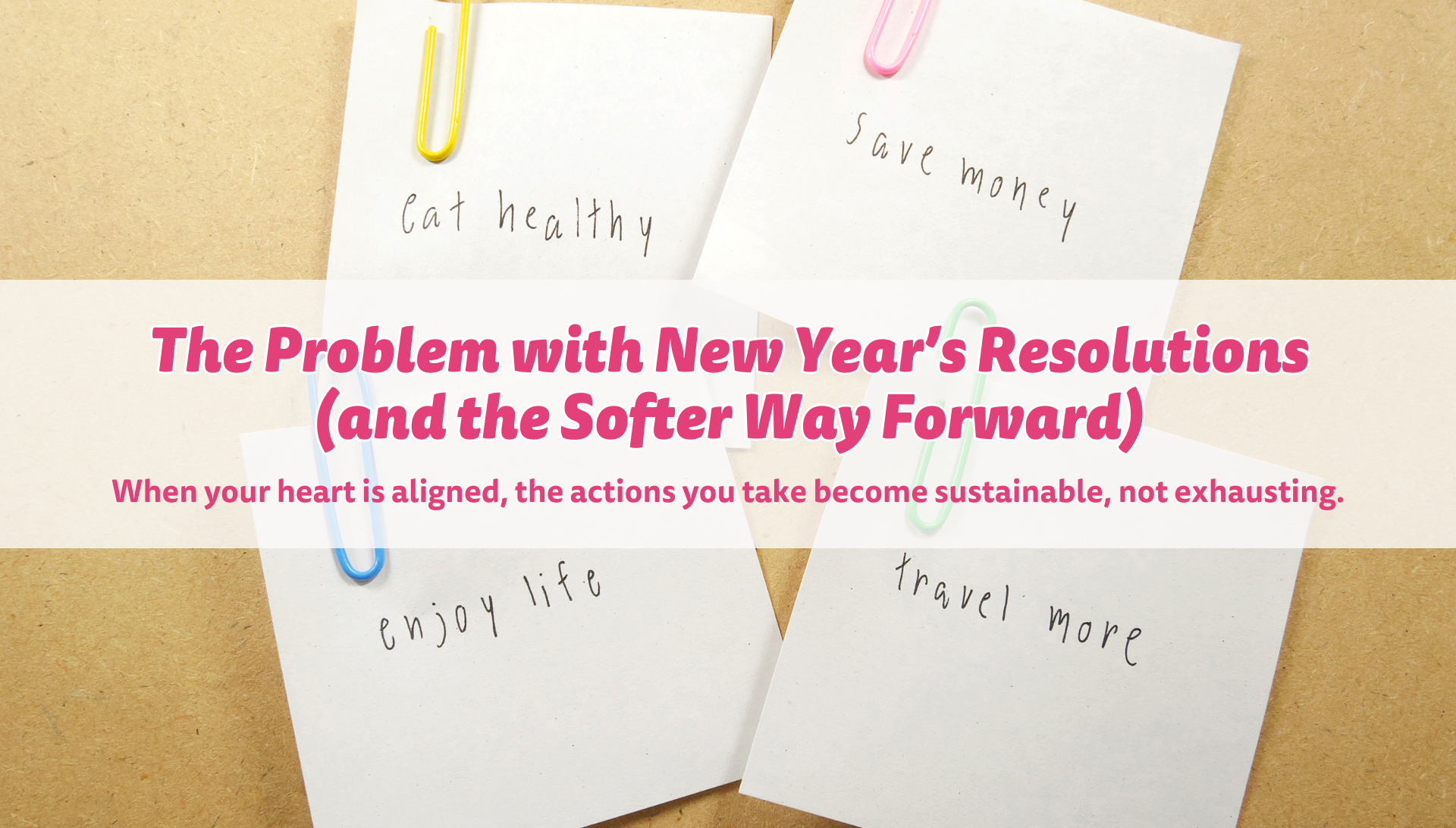By Julie Murphy
•
December 10, 2025
Reset Your Money Energy for 2026 Every December, we all feel that pull, the desire to “be better with money next year.” But here’s the secret I’ve seen again and again after nearly three decades of walking alongside people from all walks of life: Financially wealthy people don’t just plan their next year — they energetically complete the one they’re leaving. They close loops. They clear emotional residue. They realign their energy field before they set a single goal. And you can absolutely do the same. As I share in The Emotion Behind Money , wealth is never created by logic alone. It comes from managing the emotions behind your money and understanding that money itself is energy. And in Awaken Your Wealth , I remind readers that energetic shifts begin when you consciously picture yourself stepping into a new reality, while compassionately acknowledging the one you’re standing in now. So let’s walk through the simple year-end process I teach my clients — one that spiritually, emotionally, and financially resets your money field for a powerful 2026. 1. Review Your 2025 Wins & Losses With Compassion Before you step into the new year, look back with the most loving, nonjudgmental eyes possible. I call it neutral observation . Wealthy people don’t spiral into shame when something didn’t go perfectly. They get curious. Ask yourself: Where did I expand financially this year? Where did I contract emotionally or economically? What choices were truly aligned with my values? Which ones came from fear, scarcity, or old patterns? In Awaken Your Wealth , the “Accepting Reality and Awakening” step of PACT teaches that awareness without judgment is how we break old money patterns for good. So breathe. Notice. Write it down. No shame. No spiral. Just truth. 2. Forgive Any Money Mistakes Here’s a truth most people never consider: Every financial mistake carries emotional weight and emotional weight blocks money flow. From my work in The 4 Spiritual Laws of Money , we know that your heart’s energy is more powerful than your brain’s logic, and intention is what redirects energy back into alignment. Forgiveness, of yourself, your past self, or others involved, releases stagnant money energy. Try this: Write down any money decisions from 2025 that still feel heavy. Place your hand on your heart. Say: "I forgive the version of me who made this choice. She/he did the best they could with what they knew at the time.” Forgiveness isn’t about letting mistakes slide. It’s about resetting your emotional money field so you can co-create something new. 3. Create an Energetic Closing Ceremony for the Year This is where wealthy people truly separate themselves; they honor the transition. You can create your own year-end ceremony using whatever resonates from your spiritual toolkit. Here are a few ideas inspired by the intention-setting and clearing practices throughout my work: Light a candle Symbolize releasing the old year and calling in the new. Write a “completion list” Include everything you’re ready to release: debts you’re no longer carrying shame over, relationships you’re energetically cutting cords from, patterns you’re finished reenacting. Burn or bury the list This physical act tells the Universe: “I’m done living from this version of myself.” In The Emotion Behind Money , we explore how inherited beliefs and emotional patterns repeat until they are consciously released. This ceremony is your line in the sand. End with intention Close with one powerful intention for 2026, aligned from your heart: “I choose a new flow of abundance.” “I trust that money comes to me with ease.” “I allow myself to receive the wealth I’ve been working toward.” As The 4 Spiritual Laws of Money reminds us: “The Universe responds to action.” Your ceremony is your spiritual action. Ready to Step Into 2026 Aligned, Clear & Empowered? If you’re craving deeper support with your financial reset, join me for my Emotions Behind Money Workshop in January. If you’ve been feeling the nudge to recalibrate your relationship with money, this is your moment. Let’s make 2026 the year your inner wealth and your financial reality finally match. You deserve abundance and you’re closer than you think. With love, alignment & a whole lot of possibility, Julie ✨








